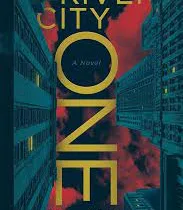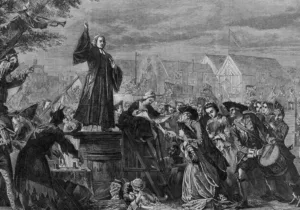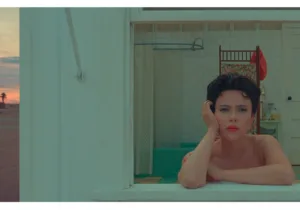I don’t count myself among those heartened by the death—or murder—of The Weekly Standard. I’ve been a fan of the magazine since shortly after college, when I found a forgotten (or evangelistically planted?) issue in the airline seat-back pocket in front of me.
I spent the flight engrossed in opinion, cultural critique, journalism, and political analysis offering reasoned—and diverse—expression of conservative positions fortified by a too-rare amalgam of theoretical and practical wisdom, wit, and a peripatetic balance of realism and idealism. I found myself constantly responding, “I’ve always said that”, or “No, I wouldn’t say that”, or, most happily of all, “Yes! Those were my thoughts exactly, but I didn’t know how to say them.” By the time we landed, I was hooked.
Fast forward to the fall of 2015, therefore, and you found me happy that Standard executive editor Fred Barnes agreed to join our own advisory board, and, a bit later, that founder and editor-at-large Bill Kristol would give the lunchtime address at the Providence launch event.
Kristol opened with an encouraging bit of numerology, observing that many great journals of thought, news, and opinion had launched in years ending with the number five, including: Commentary (1945), National Review (1955), Public Interest (1965), and The Weekly Standard itself (1995). Clearly, we were off to an auspicious start.
Following such hopeful speculation, Kristol offered prudential suggestions gleaned from his experience of the terrain he knew to be ahead of us. In addition to much else, he pushed us to remain faithful to our stated aim of helping to divest American Christianity of overly-simplistic ideas about political life, ethics, and foreign policy—whether harbored by the left or right, the cynics or sentimentalists, or whomever else. But showing people the error of their thinking is often only half the fight, he cautioned.
Riffing on a quip by the late Mike Scully, Kristol reminded us that there are some particularly intransigent people who even after getting “mugged by reality” nevertheless “refuse to press charges.” Helping readers to confront reality, Kristol mused, is the easier part. It’s another thing altogether to get them to accept the implications and act on them in practical ways.
His advice was to shift away, whenever possible, from abstract debates alone. He wasn’t denigrating theory. He was simply pointing out that a good debate will eventually “require an engagement with actual reality.” This task is aided by moving from overarching theory to specific examples. He highlighted the use of historic cases in particular, but lauded stories more generally. The point is to apply the theories to the “difficult details of real life” and see how they do.
Much the same thing was said in a conversation I recently had with Oxford professor, and Providence contributing editor, Nigel Biggar. We recorded a podcast (forthcoming!) celebrating the 20th anniversary of Terrence Malick’s The Thin Red Line. Toward the end of the discussion, Nigel reflects on his deep personal and vocational interest in films. I’ll risk the minor spoiler with a rough summary.
Film, Nigel noted, serves as a help in working out an account of the moral life capable of standing up to the messy, tragic, sometimes horrible, and often ambiguous conditions of human life. “I want my Christian ethic,” he insists, “to be one that can look the horror in the face and still stand up.” He censures much of contemporary Christian ethics as unwilling “to grasp nettles,” to acknowledge the stuff of life that is intractable and messy and that refuses neat categories. In other words, Nigel wants an ethic that is willing to admit to the “mugging” and to press charges. Real life stories—or those that are true to life—whether history, or film, or fiction test moral assumptions and can help us grow. “We shouldn’t be happy with an ethic that is simply logically consistent and abstractly perfect,” Nigel avers. We should “want it to work.”
The Standard understood this. In sifting through the obituary reflections this last week, it is evident that many readers especially valued the back of the magazine, the books and arts section. There, as Yuval Levin put it, one found “long, discursive essays on old books and new ideas, on faith and philosophy, on culture and technology.” This is crucial. Yuval continues, “like every great magazine, the Standard understood that politics is downstream of culture—for good and for bad.”
The books and arts section helped readers encounter the great—and sometimes not-so-great—works of Western, and other, culture. In serious, deliberate ways, it familiarized readers not only with contemporary works, but with the cultural artefacts of the Greco-Roman and Judeo-Christian patrimony that has nursed the Western mind for millennia.
Back at our launch, Kristol implored Providence to the same purpose. Bring back important works and ideas, he urged; stoke an interest in those thinkers that many have heard of but haven’t had the chance to read; raise issues; point to things worth knowing about and worthy of grappling with.
This is important for several reasons. I’ll touch on two. First, it’s clear that many of us aren’t particularly capable readers anymore. Good reading—whether of a book, a film, a painting, an argument, or whatever kind of “text”—is hard work. Careful readers are not ready-made, they are formed. And American schools and universities, with fewer and fewer exceptions, appear increasingly unable (or, as Victor Davis Hanson insists, unwilling) to do the job.
This is something like a catastrophe. A republic–one we can keep, anyway–depends on citizens able to meet the responsibilities of being citizens, which includes, not incidentally, knowing the limits of citizenship. These responsibilities also include bringing to public life, whether as leaders, followers, or, as is likely, both, the ability to carefully deliberate on complex matters with honesty, empathy, some capacity, and not a little civility–and to then display the habituated integrity to act on reasoned judgments with decisiveness and charity. This is more-or-less what we call ‘critical thinking’ nowadays. The ancients weren’t embarrassed to call it ‘wisdom.’
Some of the crisis is a problem with cultural literacy. If we don’t have, say, a ready-knowledge of the classical mythologies or the biblical stories, we are not going to easily access the images, allusions, and symbols present not just in the timeless and great works, but in much more contemporary fare. This amounts to a real loss. Look, Kenneth Branagh’s Cinderella might be a perfectly enjoyable film on its own surface merits. But to watch it with the details of the biblical narrative and Western, particularly Christian, symbolism, at your disposal opens interpretive vistas that, well, just might break your heart.
Second, this ability to be moved not just by the text but by the sub-text as well is an essential part of taking the full medicinal dose. This is vital because much of the analysis and opinion in the front part of the Standard often called its readers to look beyond narrow national interests and to be willing to risk or spend, sometimes significantly, blood and treasure for the welfare of our neighbors. And not just neighbors that are our kith and kin, but far-off, foreign ones as well. The “full medicinal dose” is needed to help us overcome the ills of the human condition. It is not entirely natural for human beings to risk themselves in other-centered acts of self-donation—it’s not always easy for us to love beyond ourselves or those closest to us. While there are any number of ways to acquire and train in the acquisition of the virtues, including love, exposure to the great books, histories, and art can be an especially helpful one.
For C.S. Lewis, it is encounter with the language, literature, and culture of the Western world—and by extension the more global community—that affords us an invaluable opportunity to make sense of ourselves, others, and our personal and shared experiences. It allows, it compels, us to move beyond ourselves. On the great good of extending our being through reading, Lewis wrote:
My own eyes are not enough for me, I will see through those of others. Reality, even seen through the eyes of many, is not enough. I will see what others have invented. Even the eyes of all humanity are not enough. I regret that the brutes cannot write books. Very gladly would I learn what face things present to a mouse or a bee; more gladly still would I perceive the olfactory world charged with all the information and emotion it carries for a dog.
Literary experience, Lewis attested, “heals the wound, without undermining the privilege, of individuality… in reading great literature I become a thousand men and yet remain myself.” In a world that has made a fetish of self-referentialism, indeed in a nation having the important conversation about what it means to put ourselves first, the capacity for other-regard is imperative. It helps us recall that neither we nor our situation are unique in the long history of humanity. Not only does it provide a means of overcoming the presentism that often dominates—and incapacitates—our human, including political, discourse, but this other-regard helps us to recall why some sacrifices are worth making.
In our hurried, increasingly specialized age, the importance of this is not always grasped. In Lewis’ day, in the very throes of the Second World War, there were many, even in Oxford, who suggested that such things as the study of literature were irrelevant—even irreverent—follies. When one’s culture is on the precipice of doom, facing an existential threat, it might seem merely prudent to postpone the enjoyment of cultural activities until the world is saved. Not so, insists Lewis. “Human life has always been lived on the edge of a precipice,” he observes, and “human culture has always had to exist under the shadow of something infinitely more important than itself.” And yet human beings, even in the tumult, demand knowledge and beauty now, they always have.
They propound mathematical theorems in beleaguered cities, conduct metaphysical arguments in condemned cells, make jokes on scaffolds, discuss the last new poem while advancing on Quebec, and comb their hair at Thermopylae.
Lewis disagreed that this is panache: it is merely human nature. And so, it is partially in deference to this nature that Christians, and Christian institutions, especially those—like Providence—that bear a moral educative function, ought to commit to cultural engagement. Busy people, including those busy saving the world, will read books and will watch movies. If they don’t watch or read good ones, they will read and watch bad ones. So, they just might benefit from someone making an argument for which are which.
Carrying forward the spirit and purpose of the Standard’s back pages, Providence shoulders the commitment to hold up abstract ideas about God and His word, what it means to be human, and history and contemporary times against reality, as we are given to see reality, and to point the way toward decisive and charitable action.
To carry the comparison a bit further, it was the back of the Standard that, I suggest, best helped readers recognize why the stuff in the front of the Standard mattered so much. In just the same way, through a continuing engagement with theory, cases, and the minutiae of current affairs all taken together, Providence will bear the, well, standard of showing why getting mugged by reality is only the start.
Shaping it must follow.
—
Marc LiVecche is the executive editor of Providence and McDonald Visiting Scholar at the McDonald Centre for Theology, Ethics, and Public Life at Christ Church, Oxford University. He will miss The Weekly Standard.







 Sponsor a student for Christianity & National Security 2024
Sponsor a student for Christianity & National Security 2024